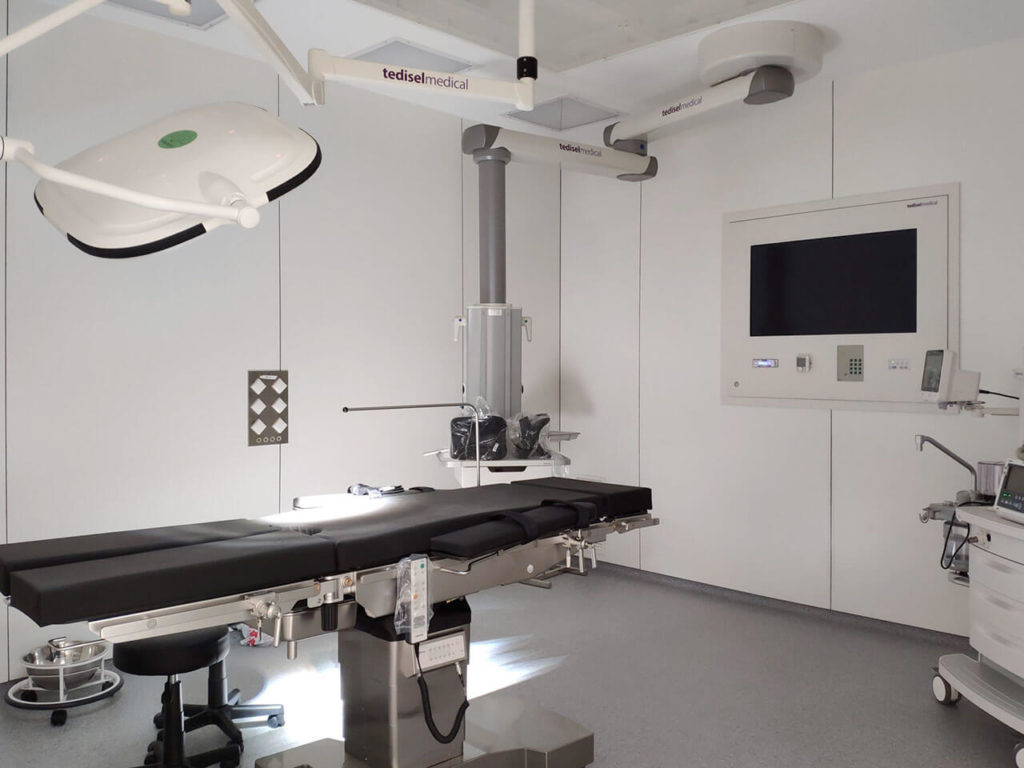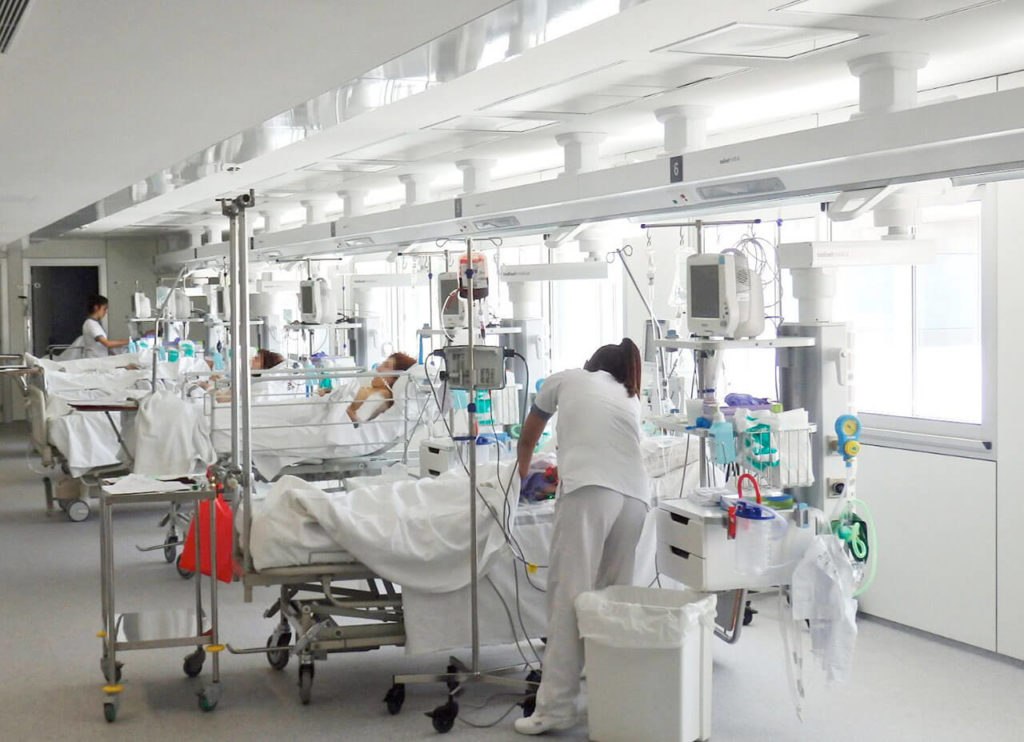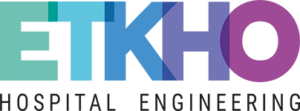The coronavirus crisis has highlighted the importance of having adequate infrastructure, supplies and equipment for the proper functioning of a hospital. Not thinking about the immediate present but looking to the future. In this regard, electricity, medicinal gases and infrastructure in general are key to all health activities.
The most direct, conspicuous, time-consuming and beneficial way to ensure that these areas are working at full capacity are health certifications and accreditations.
Having an efficient management system and automated procedures is synonymous with improvement in hospital management, and the quality of this can be measured, controlled and of course improved.

Hospital engineering, Smart Hospitals and certifications
Within the entire process that includes an accreditation or certification in the health industry, hospital engineers have a lot to say for the future. Starting with understanding the bet that health centers must make with respect to artificial intelligence and the ‘internet of things’, the experience of patients, etc.
Good hospital management in terms of equipment and infrastructures, laboratories will depend on the good work of these professionals … All with the basic idea of understanding the hospital as a “Smart” building, where good design, optimized and automated processes and an adequate infrastructure. In short, that he is able to bring all that together and at the same time think and work on his certification.

Main certification and accreditation programs in the health sector
Health institutions, with increasing frequency, are focusing efforts on the standardization of their processes and procedures, professionalizing the administrative and purely health areas, reducing expenses and betting on excellence in the provision of services.
“Hospital engineers and health managers play a key role in the implementation, development and obtaining of certifications and accreditations.”
An institution will always be stronger if it can demonstrate and document its strength and success. In this sense, some of the most important certification and accreditation programs in the health sector are:
Accreditation Canada
Together with the Health Standards Organization (HSO), Accreditation Canada, guides and monitors quality, safety and high performance standards.
DNV GL Healthcare NIAHO
A nivel internacional, pero centrada en USA y Canadá.
HIMSS
The Healthcare Information and Management Systems Society is a global, not-for-profit organization focused on the mission of optimizing the delivery of healthcare in hospitals through ICT.
Joint Commission International
It focuses on the most human part of hospital management.
ISO 9000
ISO is undoubtedly the most important global network in terms of standardization and certification.

ISO standards for the certification of hospitals
Through the certification of ISO standards, the aim is to guarantee compliance with a series of internationally recognized requirements and good practices, on aspects such as quality management, risks and safety, among others.
The ISO standard is the most important worldwide for the healthcare environment. Based on its rules and guidelines, the quality, staff training, working capacity or technical and technological development of a hospital can be reliably known.
The centers that obtain this certification undoubtedly go to another level with respect to those that have not achieved it, since it is an institutional quality seal.
To obtain this certificate, any organization must:
- Carry out internal audits in all its areas.
- Analyze its situation, trajectory and context.
- Document the processes required by the regulations.
- Develop a Quality Management System.
- Detect and solve the pertinent needs.
All this, once each center is certified, results in greater economic profitability, a guarantee of satisfaction and loyalty of patients and clients, reducing costs, etc.
A cutting-edge, demanding and beneficial certification
The standards of care and hospital management demand a great job behind it. For this reason, it is important to have, for example, hospital electrical safety solutions that guarantee the well-being of patients.
High-quality technological products and services, such as electrical systems, seek to preserve patient safety, making it easier for the hospital engineering team to manage and analyze the facilities. Consequently, in this way it is also possible to facilitate the task of audits, whether in the handling and use of medicines, prevention and control of infections, security of the facilities, etc.
In this area, and within the more specific certificates, we find the ISO 13484 health product quality management systems certificate or the UNE 179003 Patient Safety Risk Management certificate, the main objective of which is to help improve efficiency in clinical actions and to reduce risks for patients.

ISO 50001 and other management tools for hospitals
Hospitals all over the world have been carrying out energy audits for years to obtain the ISO 50001 Standard certification. Or what is the same: have the Energy Management System certificate, guaranteeing very high standards in terms of energy efficiency of the hospital is concerned.
This tool is very useful for hospitals because it allows saving costs and improving energy performance, reducing energy consumption, CO2 emissions, leaks, etc. In this regard, for health centers to achieve this, it is vital to control the isolation and electrical part of hospitals, betting on innovations and elements that optimize this important area.

Conclusion
There are many healthcare organizations that understand and value improving patient safety as a strategic objective. For this reason, public and private entities have chosen to certify their management systems in accordance with national and international regulations.
It should not be forgotten that the implementation of a management system according to technical standards contributes decisively to guaranteeing the control and monitoring of health activities.
For all the aforementioned, it could be considered that obtaining the certification is a reward for the effort and the work of hospital management and engineering that is carried out day by day in health centers, improving the image of the organization before the sector and society.



